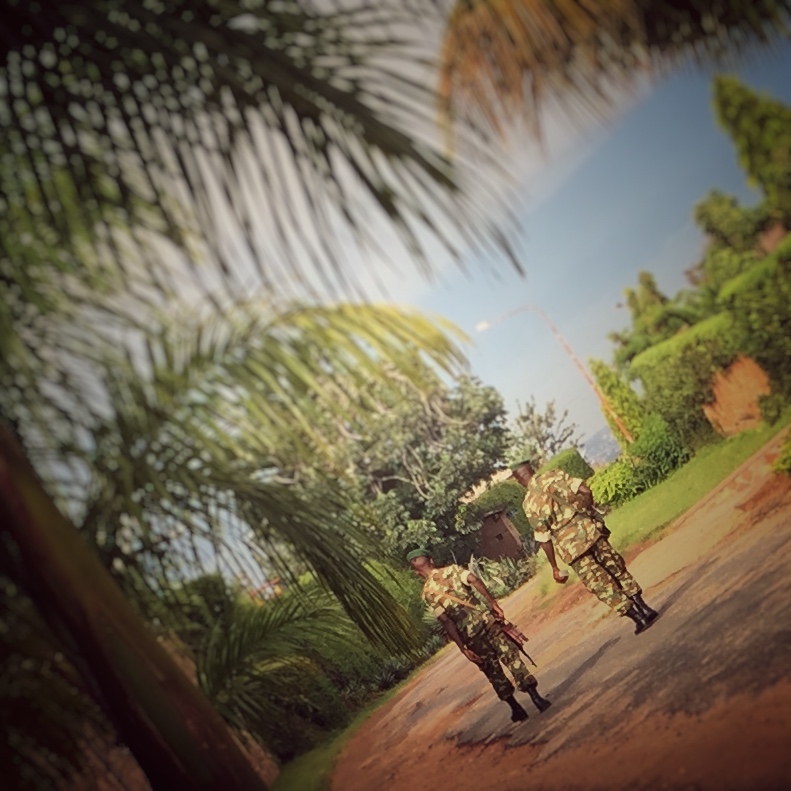
Burundian soldiers patrolling the streets of Bujumbura. Photo by the author
The car stops and the driver turns off the ignition and leans back in the seat. Before us winds a long queue of cars and minivans in the afternoon sun. People have gone out of their cars and sit in the shade along the roadside. Talking, eating, listening to the radio. The atmosphere is calm and quiet, but also restrained, subdued. Everyone is careful, observant. The scenario has become common in the capital Bujumbura in recent times. Streets and intersections blocked off to all traffic, often for several hours, waiting for the President’s convoy to pass. Usually it occurs when Nkurunziza is on his way in or out of the capital to the countryside where he prefers to stay most the time. When the convoy eventually passes, nobody is allowed nearby, no cars and no people. All street corners are emptied. Even the security personnel guarding the streets must physically turn their heads away, direct their weapons in a different direction, and may not look at the passing cars.